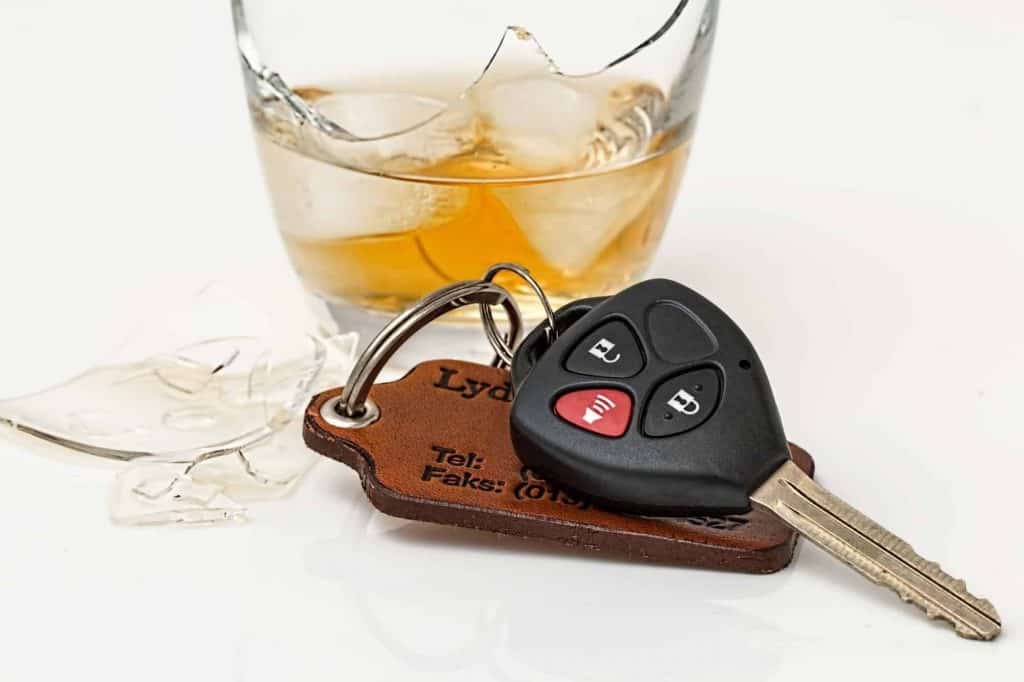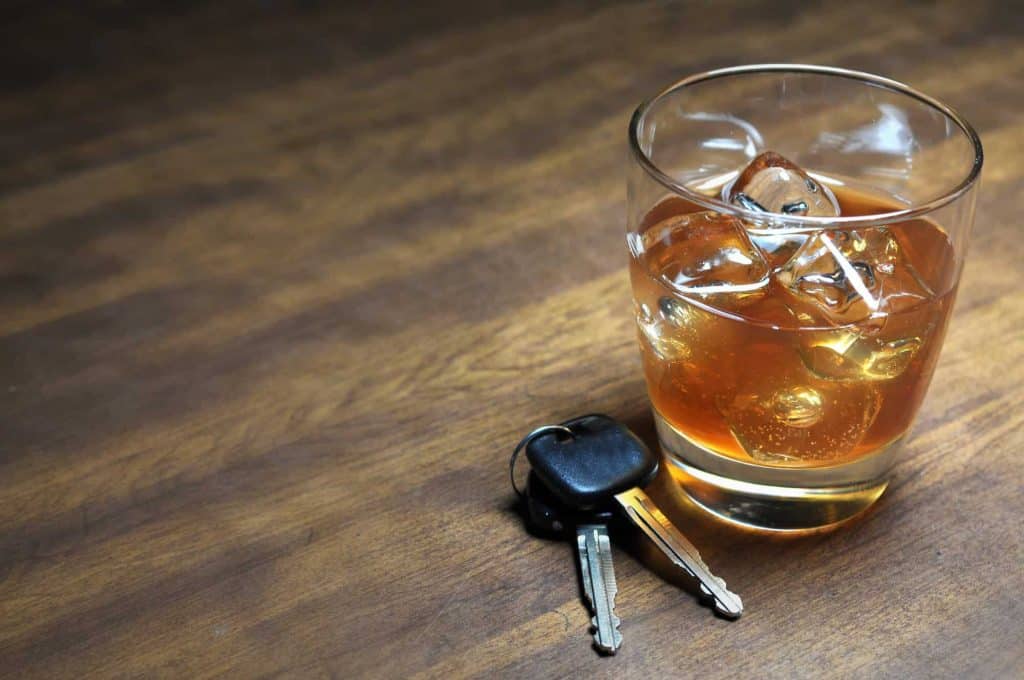You never thought it would happen to you until it does. You find yourself in handcuffs in the back of a police cruiser for a DUI or DWI. Driving under the influence (DUI) is one of the most frequent driving violations in North Carolina.
Impairment from alcohol contributes to 34% of all automobile fatalities in North Carolina. The state has experienced 485 alcohol-related fatalities in 2021. Drug use contributes to about 16% of car crashes.
When you find yourself in cuffs, you will likely be wondering about the difference between DUI and DWI. How do they determine which charge you receive? Learn everything you need to know about the law if this happens to you.
DUI or DWI—What’s the Difference?
When it comes to driving under the influence (DUI) and driving while impaired (DWI), the state of North Carolina makes no distinction between them. The state has a zero-tolerance policy for driving while impaired.
Prior to the enactment of the North Carolina Safe Roads Act of 1983 the state made a distinction between DWI vs DUI. Prior to that year, a DWI was a higher crime than a DUI.
The new law moved all alcohol and drug moving violations under the term of DWI. In any instance where a driver is driving under the influence of drugs or alcohol, they will receive a criminal charge of driving while impaired.
Determination of DWI
The level of alcohol in your blood to result in DWI charges depends on your age. Anyone over the legal drinking age of 21 years with a blood alcohol content (BAC) of 0.08% or higher will be put under arrest for DWI. If you are under 21 years of age and are found driving with any amount of alcohol in your system, you will be arrested for DWI.
If you have a prior DUI/DWI charge and are pulled over, you will receive DWI charges for having 0.04% of alcohol or more in your blood. This is also the maximum level allowable for commercial drivers.
Other DWI Offenses
In addition to having alcohol or drugs in your bloodstream, there are other acts that can result in your being charged with a DWI. This includes having an open container containing alcohol in your vehicle or having an open or closed container of alcohol on the passenger seat of a commercial vehicle. You will also receive a DWI charge if you are found guilty of helping a minor to obtain alcohol.
Field Sobriety Test
If an officer pulls you over for speeding, weaving in traffic, or reckless driving they may require you to participate in a field sobriety test. This test checks your physical and mental abilities by having you do things such as:
- Walk a straight line
- Stand on one leg
- Speak clearly
- Touch your nose, and more
After determining there is reason to believe you are under the influence of any type of substance, the officer may ask you to take a chemical test.
DUI Versus DWI Penalties
It doesn’t matter whether you call it a DUI or a DWI, the penalties for these charges in North Carolina are severe. The state has a 7-year lookback period, meaning every DWI you receive within a 7-year period increases penalty severity.
There are five levels of misdemeanor DWI in North Carolina. Judges make a determination on what level each driver falls into depending on several mitigating factors. These include:
- BAC level
- Driving record
- Level of visible impairment
- Voluntary submission or participating in assessment and treatment
- DWI contributing to an accident
- Prior DWI offenses
- Speeding
- Driving on a suspended or revoked license
The more factors the driver meets under the judge’s evaluation, the more severe the level of the criminal charges the driver receives.
The lowest charge is a level V DWI. A conviction includes penalties of 24 hours to 60 days in jail or 24 hours in jail and 24 hours of community service. It also includes up to $200 in fines and driver’s license revocation for between 30-365 days. The judge may also order a substance abuse assessment.
The most severe offense is Level I DWI, which includes 30 days to two years in jail, up to $4,000 in fines, and permanent license revocation. You must also complete a substance abuse assessment.
If you have three or more DWI convictions within a seven-year period, you will be charged with a felony DWI. You will receive the label of habitual offender. You will serve a minimum of one year in jail and complete a substance abuse program during your incarceration.
Ignition Interlock
If you receive a conviction with a BAC of 0.15% or higher or have two DWI convictions within a seven-year period you will be required to have an ignition interlock device to drive. Installation of this device on your steering wheel requires you to take a breathalyzer test prior to being able to start your vehicle. You will also take periodic breath tests while driving.
Failure to “blow” immediately upon notification is a violation. Violations of interlock device requirements result in the immediate removal of your driving privileges.
Impact on Auto Insurance
In addition to jail time, fines, and having a criminal record, picking up a DWI charge will impact your insurance rates. This is because there is an increase in risk when you drive under the influence of alcohol or drugs. These risks cost the insurance company more in payment of claims by accident victims.
The average insurance increase in North Carolina following a DWI is $3,416. This is 68% higher than the average U.S. increase following a DUI.
The Bail Process
Within 48 hours of your arrest, a hearing will be held advising you of the criminal charges you face. During the hearing, the judge will determine the amount of bail necessary for your release from jail. The amount of bail depends on several factors including the seriousness of the crime and your prior criminal history.
Payment of your bail will depend on the judge’s specific orders. It may be by cash, secured bail bonds, unsecured bail bonds, or in some cases your own recognizance. When you do not have the funds to pay your bail in full, a bail bonds service will accept 15% of the total bond amount and front the remaining amount for you.
The bail bonds service pays the full amount of your bail directly to the court. Once paid you will be released from jail pending your appearance in court.
Because of the risk the bail bond service takes, an Indemnitor must sign agreeing to pay the full amount of your bail if you do not appear in court. This is because your failure to appear means the bail bond service must pay the full bail amount to the court.
Bail Bonds Sets You Free
When it comes to receiving a DUI or DWI, the initial result is the same. You are going to jail. When that happens make sure you have the name of an expert bail bondsman to help you obtain a quick release.
Amistad Bail and Immigration Bonds is a team of professional bail bondsmen in Raleigh, North Carolina. We are available 24/7 at (800) 537-0645. We help your loved one by preparing all necessary paperwork to obtain your freedom pending trial.
To help make the process easy, we offer a variety of payment plans and free consultations. Don’t hesitate, call us today to find an agent near you.








